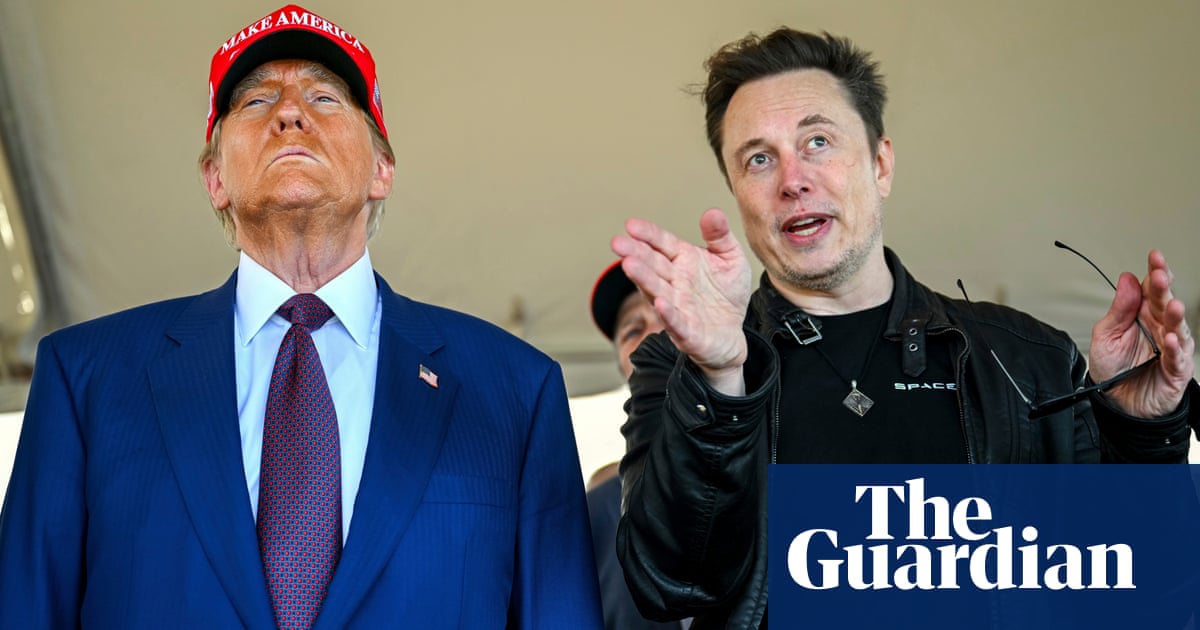Donald Trump finally won the popular vote. His narrow margin, 1.48%, proved sufficient to devastate the Democrats. Come noon on 20 January, inauguration day, Republicans will sit atop all three branches of the federal government.
It is an astonishing moment in US political history, but the year in books maps how America reached this point.
Start with The Rebels by Joshua Green, of Bloomberg News, and The Truce by Hunter Walker, of Talking Points Memo, and Luppe B Luppen, a lawyer and author.
Green focused on three notables of the Democratic left: two senators, Elizabeth Warren of Massachusetts and Bernie Sanders of Vermont, and Alexandria Ocasio-Cortez, a congresswoman from New York. Each conveys seriousness. Humour, less so.
Demands to defund the police and concerns about lax border enforcement wreaked havoc. A reminder: winning presidential campaigns often cling to the cultural center, particularly if they tilt left on economics. Ask Bill Clinton and Barack Obama.
Luppen and Walker, meanwhile, examined divides among Democrats – and captured Biden loyalists freely trashing their VP. “Kamala is not ready for prime time,” a “senior White House aide” was quoted as saying, adding: “She ain’t made for this.” Neither was Joe Biden.
War, the latest effort by Bob Woodward, the legendary Washington Post reporter, shows Biden & Co misreading their mandate and reality. Woodward also reported that the president kept close tabs on the government’s prosecution of his son Hunter. In early December, Biden gave his wild child a blanket pardon. To say “controversial” doesn’t begin to cover it.
True to form, Woodward got his sources to talk – about Trump, too. “It’s still a mystery to me how he deals with Putin and what he says to Putin,” said Dan Coats, director of national intelligence in Trump’s first administration. Coats remains certain something is there.
Kristi Noem, governor of South Dakota, is now Trump’s nominee to head the Department of Homeland Security. In April, she delivered No Going Back, a massive self-own. It destroyed her shot at being named Trump’s running mate and generated a wealth of talkshow jokes. As revealed by the Guardian, she nonchalantly copped to killing Cricket, a 14-month-old dog she deemed untrainable, and a randy unnamed goat. Noem also falsely claimed to have met Kim Jong-un, the North Korean dictator.
Tulsi Gabbard (former congresswoman, former progressive, now Trump’s nominee for director of national intelligence) and Peter Navarro (former prison inmate, incoming counselor on trade) had books out too. The Perilous Fight, Gabbard’s effort, was an awkward mix of memoir and screed. Navarro, convicted of contempt of Congress in connection with the January 6 US Capitol attack, used The New Maga Deal to push Trump’s agenda and falsely recast what happened on that bleak day in DC.
Jen Psaki, Biden’s first White House press secretary, dabbled with fiction too, in Say More. Now at MSNBC, Psaki wrote that the president never looked at his watch during a repatriation ceremony for soldiers killed in the botched withdrawal from Afghanistan. Photos and eye-witness accounts from Gold Star families said otherwise. A formal retraction followed.
In At War With Ourselves, HR McMaster took another look at the 14 months he spent as Trump’s national security adviser. “I couldn’t help but think that living at the base of an active volcano was an apt metaphor for serving in the Trump White House,” the retired general writes.
McMaster is also unsparing in his criticism of Obama and Biden. He blasts Obama for the Iran nuclear deal and tags Biden for easing sanctions on Tehran and Venezuela, as well as for relaxing “security on the Mexican border”.
Melania Trump, Trump’s wife, released an eponymous memoir – AKA 180 pages of double-spaced buck-passing and blame-dodging. She elides personal responsibility for plagiarizing a Michelle Obama speech, and declared abortion to be a fundamental right.
Other Trumps too picked up a pen. Fred Trump, presidential nephew, released All in the Family: The Trumps and How We Got This Way – a well-paced, engrossing portrait of dysfunction. The author’s son suffers from a lifelong neurological disability. According to Fred Trump, Donald Trump has been … less than understanding.
Mary Trump, Fred’s sister, released her third book, Who Could Ever Love You, dishing some more on her uncle but also recounting her brutal home life. At times, she wishes Trump was not her name.
Bill and Hillary Clinton still won’t leave the stage. Each published a new memoir.
In Something Lost, Something Gained, Hillary remained plagued by what might have been. “As Faulkner wrote, ‘The past is never dead. It’s not even past,’” she wrote, invoking the one oft-invoked quote from Faulkner that everyone seems to know. “I live with it every day.”
With Citizen, Bill delivered a stroll down memory lane and sent his “best” wishes to Monica Lewinsky, the 22-year-old intern with whom he had the sexual relationship that led to his impeachment. Clinton also examined – briefly, very briefly – his interactions with Jeffrey Epstein, the financier and sex offender who died in jail in 2019, and whose links to Trump are perennially discussed.
Back in Washington DC, men who behave very badly are again in the news. Trump’s nomination of Matt Gaetz for attorney general lies in the gutter. Pete Hegseth, his pick for defense secretary, clings to the curb.
after newsletter promotion
In September 2018, Christine Blasey Ford testified that Brett Kavanaugh, Trump’s second supreme court nominee, sexually assaulted her in high school. In March 2024, Ford released One Way Back: A Memoir. Essentially, she dared Kavanaugh to sue for defamation: “The fact is, he was there in the room with me that night in 1982. I believe he knows what happened. Even if it’s hazy from the alcohol, I believe he must know.” Wisely, Kavanaugh holds his peace.
During the election, Trump repeatedly threatened to challenge the outcome. Academics Lawrence Lessig and Matthew Seligman offered How to Steal a Presidential Election, a granular examination of pressure points Trump might have used. As they saw it, the danger of electors being coerced to switch votes was “significant”. Trump won the normal way, but the authors’ warning holds. The system is vulnerable.
On the same front, Michael Isikoff and Daniel Klaidman, veteran investigative journalists, delivered Find Me the Votes, a readable account of Trump’s attempt to overturn the 2020 election. For a while, Fani Willis, the district attorney of Fulton county, Georgia, emerged as a hero to those who oppose Trump. These days, she is off the case. Her ill-advised relationship with Nathan Wade claimed both as casualties. The case has ground to a halt.
Books by future Democratic presidential hopefuls were rare. But in the summer, as Biden’s campaign collapsed, Gretchen Whitmer, governor of Michigan, released a distinctly campaign-ish memoir: True Gretch. A light read, it describes personal growth and political ascent. If she does run in 2028, the Clintons and others have shown you don’t have to stick at just one memoir.
Away from the campaign, the lobbying industry received an intense examination in The Wolves of K Street by Brody Mullins, a Pulitzer-winning former Wall Street Journal reporter, and his brother, Luke Mullins of Politico. Tightly stitched, the 600-plus-page tome centers on the suicide of Evan Morris, a lobbyist for big pharma. It ends on a weary note: “No matter what new obstacles have emerged, K Street has always managed to invent new ways to exercise its power over Washington.”
Point taken: Susie Wiles, Trump’s next chief of staff, is a former lobbyist and so is Pam Bondi, up for attorney general after lobbying for Amazon, General Motors, Uber, Qatar and private prisons.
Among books on big political themes, Tevi Troy brings The Power and the Money. Once deputy secretary for health and human services under George W Bush, Troy makes clear that while CEOs and presidents seek symbiotic relationships, things often grow fractious. He stresses that Elon Musk of SpaceX, Trump’s new budget-bashing buddy, received a major boost from government contracts.
Released last year, Party of the People remains salient. “Biden is faltering among the core Democratic groups that were once the mainstay of ‘the party of the people’ – working-class voters of color,” Patrick Ruffini, the Republican pollster, wrote. No pollster will always be Nostradamus. But nor is every pollster a Nostradumbass. Ruffini stands vindicated.
The most memorable political book of the year, however, wasn’t about American politics. In Patriot: A Memoir, Alexei Navalny left us an exhilarating read. Before he was murdered in an Arctic prison, at the orders of Vladimir Putin, the Russian dissident wrote lovingly of family, doubled down on faith and celebrated the quotidian, all the while jauntily mindful of his own epochal fate. He also delivered a stinging indictment of autocracy, via Hogwarts and Middle-Earth.
“When I am asked what it’s like to die from a chemical weapon, two associations come to mind: the Dementors in Harry Potter and the Nazgûl in Tolkien’s Lord of the Rings,” Navalny wrote, of his near fatal novichok poisoning in 2020, at Putin’s orders, too. “The kiss of a Dementor does not hurt: the victim just feels life leaving. The main weapon of the Nazgûl is their terrifying ability to make you lose your will and strength.”
Not yet in office, Trump calls for jailing members of the House committee that investigated the insurrection. Liz Cheney, the former Republican congresswoman from Wyoming, and Adam Schiff, the newly seated Democratic senator from California, sit squarely in his crosshairs. He also vows to pardon the January 6 rioters on “day one”.
On the other hand, Trump disclaims responsibility for the impact of his contemplated tariffs. “I can’t guarantee anything. I can’t guarantee tomorrow,” he protests.
Turmoil lurks. This is the stuff of books to be written.

 German (DE)
German (DE)  English (US)
English (US)  Spanish (ES)
Spanish (ES)  French (FR)
French (FR)  Hindi (IN)
Hindi (IN)  Italian (IT)
Italian (IT)  Russian (RU)
Russian (RU)  15 hours ago
15 hours ago
























Comments